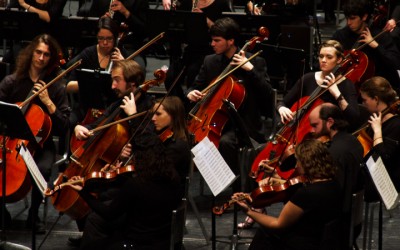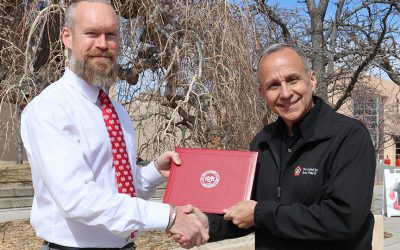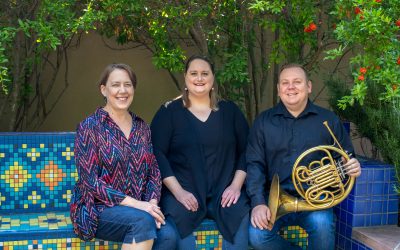Musicology Colloquium Series
Sponsored by The University of New Mexico Department of Music & The Latin American and Iberian Institute
Latin American and Iberian Institute (LAII) Conference Room
Thursday September 12, 2019
2:00-3:30pm
Sones de allá para acá: Son Jarocho from Mexico to USA
Name of presenter: Doris Careaga Coleman
Talk Description:
Son Jarocho is a genre of traditional Mexican music performed in southern Veracruz that has gained prominence in Chicanx communities in the United States. In this talk we will analyze the origins, rhythms, musical forms, and dances both in Mexico and the United States.
Biography:
Dr. Doris Careaga Coleman teaches in the Department of Chicana Chicano Studies. In her academic courses she illuminates Afromexican literature, history, and culture. Her areas of research include son jarocho, culinary arts, and literature and theory related to Afromexican cultural studies. Dr. Careaga Coleman is the author of La Cocina Afromestiza en Veracruz (1995 (republished in 2004 and 2006)), La Cuenca del Papaloapan (1996), El Exótico Sabor de Veracruz (2000), and La Cocina Tradicional de Jalcomulco (2000 (republished in 2017)). Her most recent book is La culinaria afrodescendiente en Tamiahua: un discurso para iluminar a los afrodescendientes mexicanos (2018).
UNMSO and UNM Choirs Present: A Concert For Healing
Friday, May 5 at 7:30 pmPopejoy HallUNM Symphony Orchestra directed by Dr. Matthew Forte.UNM Choirs directed by Dr. David Edmonds The UNM Choirs and Symphony Orchestra present a concert that speaks directly to the challenges faced by musicians during the COVID-19...
Announcing the 2022 Distinguished Music Alumni Award recipient
We’re proud to announce the 2022 Distinguished Music Alumni Award recipient. The UNM Department of Music is awarding the first Distinguished Alumni Award to Colonel Jim R. Keene in recognition of his outstanding accomplishments in the field of music. Col. Keene...
AMITY TRIO RELEASES DEBUT ALBUM
“BETWEEN US NOW”
AMITY TRIO RELEASES DEBUT ALBUM“BETWEEN US NOW” Bloomington, IN: The Amity Trio is releasing their debut album, “Between Us Now”. The album features North American composers Amy Beach, Dr. Lauren Bernofsky, Dr. Alice Jones, Dr. Carrie Magin, Florence Price, and Nur...



